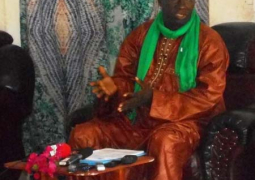The
topic of recipients versus non-recipients of zakah has already been covered. It
does happen, however, that a zakah payer inadvertently gives it to an
ineligible person at the expense of an eligible one. Upon the realization of
such a mistake, would he be considered to have fulfilled his obligation of
zakah or would it still be a debt upon him until he pays it to the right
people? The jurists differ over this point. Abu Hanifah, Muhammad, al-Hasan,
and Abu ‘Ubaidah maintain that in such a case he would not be required to pay
another zakah. Ma’an ibn Yazid reports: “My father set aside a few dinars for
sadaqah and gave them to a man in the mosque. I went and took them and brought
them back to my father. He said: ‘By Allah! What have you done?’ I consulted
the Prophet, upon whom be peace, about it. The Prophet observed: ‘O Yazid, for
you is what you intended and O Ma’an, for you is what you have taken.’ “This is
related by Ahmad and AlBukhari. The meaning of this hadith is that sadaqah is
supererogatory (nafl); however, the word ma (meaning what) in laka rna nawayta
(for you is what you intended) denotes generalization. Abu Hanifah and Muhammad
are supported in their stand by a hadith from Abu Hurairah which reports the
Prophet, upon whom be peace, saying: “A man [from Banu Isra’il] said [to
himself]: ‘Tonight I will give away something in sadaqah.’ So he went out with
his sadaqah and [unknowingly] gave it to a thief. The next moming he was told
by the people that he had given sadaqah to a thief. [On hearing this,] he said:
‘O Allah! Praised be You. Certainly I will give sadaqah again.’ So, he went out
with his sadaqah and [unknowingly] gave it to an adulteress. The next moming he
was told that he had given sadaqah to an adulteress. The man said: ‘O Allah!
Praised be You. [I gave my sadaqah] to an adulteress. Certainly I will give
sadaqah again.’ Thus he went out with his sadaqah again and [unknowingly] gave
it to a rich person. The next moming the people said that the night before he
had given his sadaqah to a wealthy person. He said: ‘O Allah! Praised be You.
[I have given my sadaqah] to an adulteress, a thief, and a rich person.’ [In
his dreams] he saw someone saying to him: ‘The sadaqah you gave to the thief
might make him abstain from stealing, and that given to the adulteress might
make her abstain from illegal sex [adultery], and that given to the wealthy
person might make him learn a lesson from it and spend his wealth, which Allah,
the Exalted One, has given him in Allah’s cause.’ “This is related by Ahmad, AlBukhari, and Muslim. The Prophet, upon
whom be peace, said to a man who asked him for sadaqah: “If you were eligible
for zakah, I would have given you your due.” He (the Prophet) gave (zakah) to
two well-built persons saying: “If you wish, I will give from it [sadaqah].
There is no portion in it for a wealthy person or a healthy individual who is
beaming.” Ibn Qudamah says: “If he would have considered the reality of the
rich person, he would not have been contented with what they said [concerning
this matter].” The opinion of Malik, ash-Shaf’i, Abu Yusuf, ath-Thauri, and Ibn
al-Munzhir is that it will not be sufficient for a zakah payer to give it to
the undeserving, especially when his mistake becomes clear. In that case, he
should pay zakah once again to those who deserve it. His case is similar to the
case of unpaid debts (owed) to other people. Ahmad says that there are two
opinions concerning one paying zakah to a person whom he thought was poor and
later leamed was rich. The first contends it would be considered paid, while
the second says that it would not be. When it becomes known that one who
received zakah is a slave, an unbeliever, a Hashimite (a person from the
Prophet’s family), or an ineligible relative of the zakah payer, then one has
not discharged one’s obligation, the reason being that it is difficult to know
who is rich and who is poor: “The ignorant man thinks that since they [who do
not ask for] are modest they are free from want” [al-Baqarah 273].
It is permissible for the person giving sadaqah to disclose his sadaqah, whether it is of an obligatory or supererogatory type (nafilah), so long as he does not do it ostentatiously. However, it is preferable not to disclose it. Allah, the Exalted One, says: “If you publicize your almsgiving, it is alright, but if you hide it and give it to the poor, it will be better for you” [al-Baqarah 271]. Ahmad, AlBukhari, and Muslim relate from Abu Hurairah that the Prophet, upon whom be peace, said: “Seven people will be shaded by Allah on the day when there will be no shade except His. These people are: a just ruler, a young man who has been brought up in the worship of Allah, a man whose heart is attached to the mosque, two persons who love each other only for Allah’s sake and they meet and depart in Allah’s cause only, a person who gives sadaqah so secretly that his left hand does not know what his right hand has given, a person who remembers Allah in his seclusion and his eyes get filled with tears, and a man who refuses the call of a chamling woman of noble birth for illicit sex and says: ‘I am afraid of Allah, the Exalted One.’ “
ZAKAT UL-FITR
Zakat ul-fitr is a type of sadaqah which must be paid by every Muslim, young and old, male and female, free and slave, at the end of the month of fasting (Ramadan). Al-Bukhari and Muslim relate from Ibn ‘Umar that he said: “The Prophet, upon whom be peace, enjoined the payment of one sa’ of dates or one sa’ of barley as zakat ul-fitr on every Muslim, young and old, male and female, free and slave.”
THE PURPOSE OF ZAKAT UL-FITR
Zakat ul-fitr was made obligatory in the month of Sha’ban in the second year of the hijrah. Its purpose is to purify one who fasts from any indecent act or speech and to help the poor and needy. This view is based upon the hadith reported by Abu Dawud, Ibn Majah, and ad-Daraqutni from Ibn ‘Abbas. The Messenger of Allah, upon whom be peace, enjoined zakat ul-fitr on the one who fasts to shield one’s self from any indecent act or speech and for the purpose of providing food for the needy. It is accepted as zakah for the person who pays it before the ‘id Salah, and it is sadaqah for the one who pays it after the Salah.
WHO MUST PAY ZAKAT UL-FITR
Zakat ul-fitr is incumbent on every free Muslim who possesses one sa’ of dates or barley which is not needed as a basic food for himself or his family for the duration of one day and night. Every free Muslim must pay zakat ul-fitr for himself, his wife, children, and servants.
THE AMOUNT OF ZAKAT UL-FITR
The required amount of zakat ul-fitr is one sa’ of wheat, barley, raisins, dry cottage cheese (aqit), rice, corn, or similar items considered as basic foods (qut). Abu Hanifah made it permissible to set aside, as a zakat ul-fitr, an equivalent value and also said that if the payer pays in wheat, one-half of a sa’ would be sufficient. Abu Sa’id al-Khudri reported: “We used to give on behalf of every child, old person, freeman, and slave during the lifetime of the Messenger of Allah, upon whom be peace, one sa’ of food, or one sa’ of dried cottage cheese, or one sa’ of barley, or one sa’ of dates, or one sa’ of raisins as zakat ul-fitr. We continued to do so until Mu’awiyyah came to us to perform pilgrimage (hajj) or a minor pilgrimage (‘umrah). He then addressed the people from the pulpit and said to them: ‘I see that two mudds of wheat of Syria equals one sa’ of dates.’ The people accepted that.” However, Abu Sa’id contended: “I would continue to give as I used to give, namely, one sa’ as long as I live.” This is related by most hadith narrators. At-Tirmizhi remarks: “Some of the scholars gave one sa’ from every charitable item [which is accepted as a sound practice].” Ash-Shaf’i and Ishaq sustain this view but some other scholars gave one sa’ from every charitable item except wheat, of which only half a sa’ would be sufficient. This is the saying of Sufyan, Ibn al-Mubarak, and the scholars of Kufah the fast of Ramadan ends. Abu Hanifah, al-Layth, ash-Shaf’i (in his original opinion), and the second report of Malik say that zakat ul-fitr is due at the start of fajr on the day of ‘id.
These two different views acquire relevance if a baby is born after sunset but before dawn on the day of ‘id; the question then is whether zakat ul-fitr is obligatory for the baby or not. In accordance with the first view, it is not since the birth took place after the prescribed time, while according to the second view, it is due because the birth took place within the prescribed space of time.
To be continued



